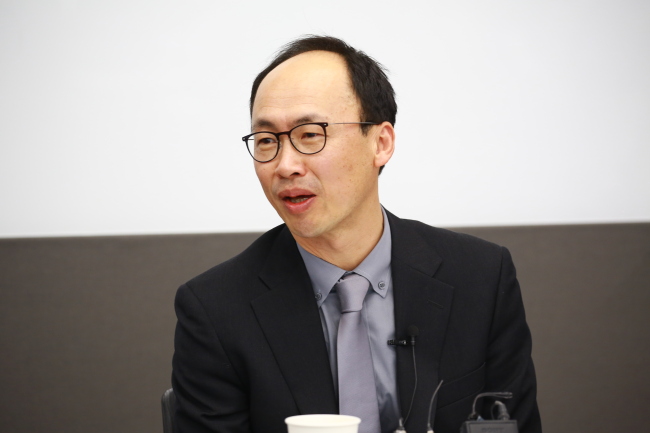ILO urges Seoul to ratify contract worker convention
By Kim Bo-gyungPublished : March 7, 2019 - 21:20
As the European Union ramps up pressure on South Korea to ratify four of the eight essential conventions of the International Labor Organization, the UN agency’s Employment Policy Department Director Lee Sang-heon on Thursday emphasized that doing so would ensure improved protection for temporary workers.
Korea joined the ILO in December 1991, but has not adopted four of its eight key conventions applied unconditionally to laborers. There are 189 conventions in total.
“A common aspect among the countries that have yet to adopt the conventions is that laborers, particularly temporary workers, face many hurdles in expressing their voice. Ratifying the key conventions would be the first step toward resolving legal and social constraints,” Lee said in a media interview in Seoul.
Korea joined the ILO in December 1991, but has not adopted four of its eight key conventions applied unconditionally to laborers. There are 189 conventions in total.
“A common aspect among the countries that have yet to adopt the conventions is that laborers, particularly temporary workers, face many hurdles in expressing their voice. Ratifying the key conventions would be the first step toward resolving legal and social constraints,” Lee said in a media interview in Seoul.

“Signing the conventions is the start to revising the law and system. It is not the end, rather a beginning to making changes.”
The key conventions that Korea has yet to sign concern freedom of association, protection of the right to organize, abolition of forced labor and the right to collective bargaining.
Lee’s visit comes amid mounting tensions between labor, management and the government surrounding new terms, such as the expansion of flexible hours.
The hard-line umbrella Korean Confederation of Trade Unions staged a general strike earlier this week urging the government to sign the ILO conventions, which would allow laid-off workers to join the labor union. The Korea Employers Federation seeks to limit collective bargaining and protests.
“It is difficult to comment on the complicated controversies in Korea. But it seems the ongoing discussions include matters not quite related to the conventions,” Lee said.
He pointed out the frequency of serious industrial accidents in Korea, most of which involve temporary workers as seen in the recent deaths of contract workers.
“In spite of Korea’s economic development, the frequency of industrial accidents remains very high. We’re talking about accidents that may, at times, lead to death. It is inconceivable to obligate citizens to work under life-threatening conditions,” Lee said.
The death of subcontracted worker Kim Yong-gyun, 24, who was stuck in a conveyor belt while inspecting equipment at a power plant in Taean, South Chungcheong Province, in late December, shed light on the hazardous working conditions of irregular workers.
According to data released by Rep. Lim Lee-ja of the main opposition Liberty Korea Party, 20 subcontracted workers were killed at power plants between 2014 and last year while on duty at the following power plants: Korea South-East Power, Korea Western Power, Korea Midland Power, Korea Southern Power and Korea East-West Power Corp.
Of the 348 injured at the five power plants, 97.7 percent were subcontracted workers, data showed.
By Kim Bo-gyung (lisakim425@heraldcorp.com)








![[Graphic News] More Koreans say they plan long-distance trips this year](http://res.heraldm.com/phpwas/restmb_idxmake.php?idx=644&simg=/content/image/2024/04/17/20240417050828_0.gif&u=)
![[KH Explains] Hyundai's full hybrid edge to pay off amid slow transition to pure EVs](http://res.heraldm.com/phpwas/restmb_idxmake.php?idx=644&simg=/content/image/2024/04/18/20240418050645_0.jpg&u=20240419100350)







![[KH Explains] Hyundai's full hybrid edge to pay off amid slow transition to pure EVs](http://res.heraldm.com/phpwas/restmb_idxmake.php?idx=652&simg=/content/image/2024/04/18/20240418050645_0.jpg&u=20240419100350)

![[Today’s K-pop] Illit drops debut single remix](http://res.heraldm.com/phpwas/restmb_idxmake.php?idx=642&simg=/content/image/2024/04/19/20240419050612_0.jpg&u=)